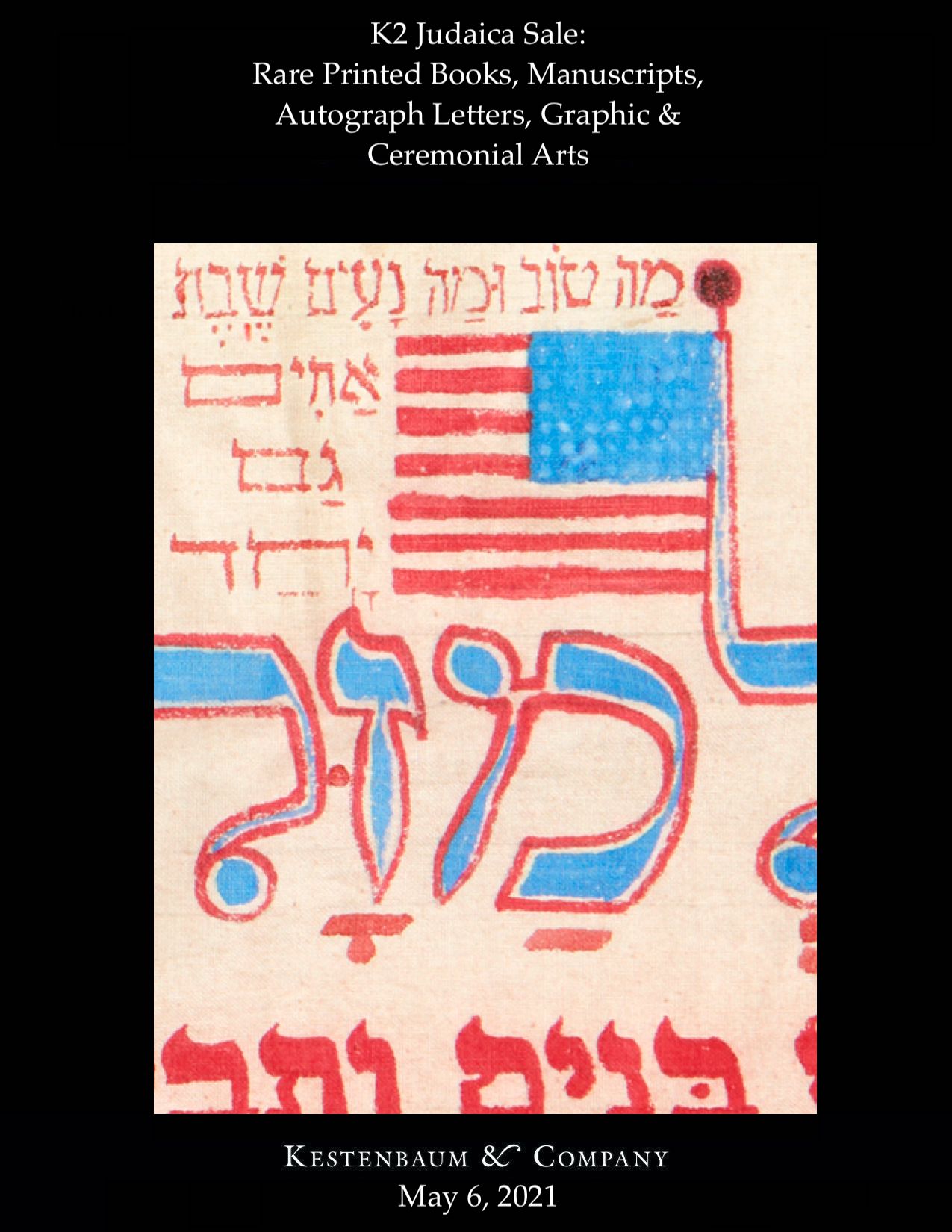Discorso intorno a l’humana miseria e sopr’al modo di fuggirla [“A Discourse on Human Suffering and How to Escape It”]. ff. (4), 38.

Auction 93 |
Thursday, May 06th,
2021 at 1:00pm
K2 Judaica Sale: Rare Printed Books, Manuscripts, Autograph Letters, Graphic & Ceremonial Arts
Lot 181
POMIS, DAVID DE.
Discorso intorno a l’humana miseria e sopr’al modo di fuggirla [“A Discourse on Human Suffering and How to Escape It”]. ff. (4), 38.
Venice: Giordano Ziletti 1572 and 1571
Est: $500 - $700
PRICE REALIZED $1,100
David ben Isaac de Pomis [min HaTapuchim] (1525-93) was a scion of one of the four distinguished families reputedly brought by Titus from Judea to Italy at the time of the destruction of the Second Temple. De Pomis was a practicing rabbi and physician who received his medical doctorate from the University of Perugia in 1551. Throughout his life, De Pomis’ ability to practice medicine was periodically restricted by Papal edicts that forbade Jewish physicians from attending Christians. The subsequent lulls in his medical career gave him the opportunity to gain repute as a writer and linguist. De Pomis composed several medical pamphlets, a trilingual dictionary, as well as Italian translations of the Bible. The present two works are thus representative of the scope of de Pomis’s scholarship: A Biblical translation and an holistic medicinal discourse in which De Pomis shares the methods he had formulated to distract himself from misfortunes suffered. The second work was published as an appendix to the first, intended as a practical afterword to King Solomon’s treatment on temporal suffering.
See C. Roth, The Jews in the Renaissance, pp. 223-25.
